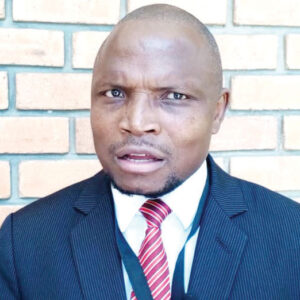By Isaac Salima:
Legal scholars have differed on the issue of challenging provisions of the revised Local Government, Parliamentary and Presidential Elections Act, which recognises the national identity (ID) card as the only recognised form of documentation.
While some are saying the issue is legal in nature, others claim that it is political in nature.
Under new electoral laws, one has to register for a national ID to be eligible to vote during elections.
However, the provision has sparked concerns among some quarters, who argue that it denies eligible people their right to vote.
They argue that the National Registration Bureau (NRB) has no capacity to register all eligible Malawians.
One of the concerned stakeholders, Economic Freedom Movement (EFM), has organised demonstrations on the issue in Lilongwe today.

Weighing in on the issue, Malawi Law Society President Patrick Mpaka told The Daily Times that a judicial review on the new law could be sought by concerned parties.
“They can take the matter to court and challenge the constitutionality of the requirement. The court would decide if that is in line with the Constitution,” Mpaka said.
He added that there was a need to quickly address the issue so that when the country moves into electoral mode, it has a clear understanding of the issue.
However, seasoned law expert Garton Kamchedzera said the issue was not legal but, rather, a political one.
“The way to resolve the issue is to comply with the law and not to pander to failure,” he said.
On his part, South Africa-based law scholar Danwood Chirwa backed calls to amend the law so that a national ID should not be used as the only proof of identification in elections.
“Yes, the requirement would most likely be seen as creating a barrier to exercising the right to vote. Malawi doesn’t have an established system for birth and death registration linked to the issuance of IDs. Given that the ID was introduced only recently, it is still too early to think of making it a compulsory requirement for accessing public and other services including voting,” Chirwa said.
Politician Cassim Chilumpha, who is also a legal scholar, said the constitutionality of the law could be challenged.
“The Republican Constitution gives every eligible individual the right to vote. This is what we fought for when we opted for multiparty [politics]. This can be challenged in court,” Chilumpha said.
Mulanje West parliamentarian Yusuf Nthenda said Tuesday, in ‘Kulinji’ programme on Times Radio, that he doubted that Parliament could repeal the law.
“Those of us who are against the law are in minority. The government side is in majority. So, even if we moved a motion, we cannot be successful. This bill passed not because we wanted it but because they [government side] had the numbers,” Nthenda said.
He said NRB had been found wanting in the registration of national IDs, hence their reservations on its capacity to register all eligible voters.
Meanwhile, Joseph Peshi of EFM has said the protests are on in Lilongwe today.
“The protest follows the authorities’ inaction on a petition we recently presented to Parliament,” he said.
Meanwhile, Information Minister Moses Kunkuyu has said holding demonstrations is a constitutional right.
“However, when doing that, you also have to respect other avenues which can [be used to] handle the grievances.
“In this case, it is Parliament that can resolve it. The best thing was for the concerned Malawians to reach out to their members of Parliament, who are responsible for making and amending the law,” Kunkuyu said.
Recently, NRB went on a mop-up exercise aimed at giving an opportunity to those who missed the outreach programme so that they could also register to get a national ID.
The Malawi Electoral Commission (Mec) is expected to begin the voter registration exercise soon.
Mec Chairperson Judge Annabel Mtalimanja told members of the Defence and Security Committee of Parliament that amending the law to accommodate the use of other forms of identification would impact the commission’s activities.








